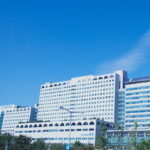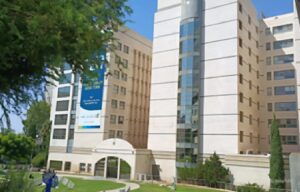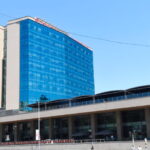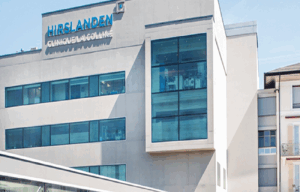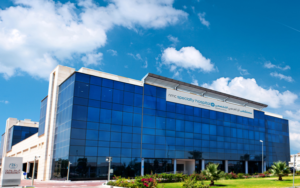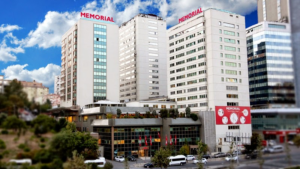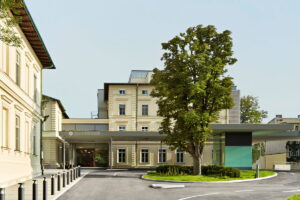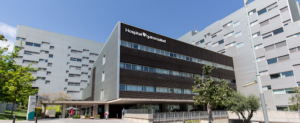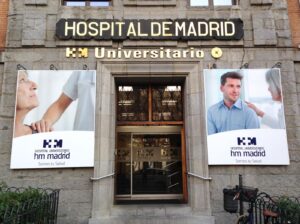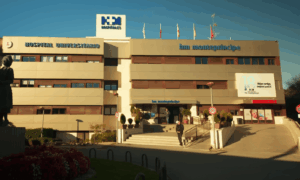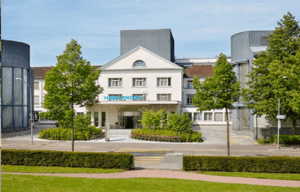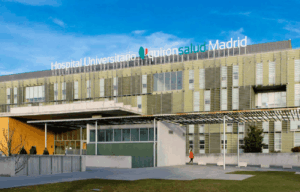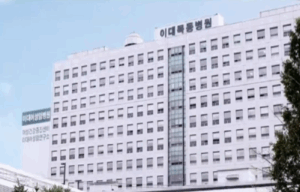Polycystic ovary syndrome (PCOS)
Disease Description
Polycystic ovary syndrome (PCOS) is the most common hormonal disorder in women of reproductive age. In PCOS, the maturation of eggs is impaired due to excessive production of androgens. The volume of the ovary can increase by up to 10 times due to the formation of small cysts.
PCOS occurs in 8-12% of women and is a leading cause of infertility. A significant role in the development of PCOS is played by genetic predisposition at the gene level and the presence of insulin resistance.
Symptoms indicating the need for diagnosis and treatment
The main symptoms of PCOS:
- Menstrual cycle disorders (changes in duration and amount of bleeding, absence of ovulation)
- Hirsutism — male-pattern hair growth (appearance of hair on the face, chest, abdomen)
- Acne
- Hair loss
- Weight gain
Methods of diagnosis and treatment
Diagnosis
The European Society of Reproductology has summarized the main criteria for PCOS: oligoovulation (rare ovulation or its absence), hyperandrogenemia (increased levels of male hormones — androgens), and multiple ovarian cysts according to ultrasound data. If two out of the three signs are present, a diagnosis of polycystic ovary syndrome is made.
To confirm the diagnosis, biochemical tests are prescribed, namely anti-Müllerian hormone and a blood test for androgen levels.
Treatment
Leading clinics worldwide follow a comprehensive approach in the treatment of polycystic ovary syndrome. The patient is managed by a whole team of highly qualified specialists, including an endocrinologist and an obstetrician-gynecologist.
There is no universal treatment: for each patient, an individual plan is developed to prevent the formation of cysts. The first in the list of treatment methods is hormone therapy, aimed at reducing androgen levels.
A mandatory condition for recovery is the correction of metabolic disorders. Doctors provide recommendations, the basis of which includes:
- Reducing stress levels
- Changing diet
- Regulating sleep
- Increasing physical activity
Innovations in leading clinics
An advanced method of treating infertility in PCOS is IVF or ovulation stimulation. Ovarian stimulation in the protocol is carried out using special drugs, with an effectiveness reaching 60% (the release of an egg from the ovary occurs). At the same time, the risk of developing ovarian hyperstimulation syndrome is minimal.
Top clinics
-
 Seoul, South Korea Asan Medical Center
Seoul, South Korea Asan Medical Center -
 Jerusalem, Israel Hadassah Medical Center
Jerusalem, Israel Hadassah Medical Center -
 Petah Tikva, Israel Medical Center “Rabin”
Petah Tikva, Israel Medical Center “Rabin” -
 Istanbul, Turkey Medipol Mega University Hospital
Istanbul, Turkey Medipol Mega University Hospital -
 Istanbul, Turkey Istanbul Florence Nightingale Hospital
Istanbul, Turkey Istanbul Florence Nightingale Hospital -
 Geneva, Switzerland Hirslanden Clinique La Colline
Geneva, Switzerland Hirslanden Clinique La Colline -
 Geneva, Switzerland Generale-Beaulieu
Geneva, Switzerland Generale-Beaulieu -
 Istanbul, Turkey Acibadem Altunizade
Istanbul, Turkey Acibadem Altunizade -
 Istanbul, Turkey Acıbadem Ataşehir Clinic
Istanbul, Turkey Acıbadem Ataşehir Clinic -
 Antalya, Turkey Hospital Medical Park Antalya
Antalya, Turkey Hospital Medical Park Antalya -
 Dubai, UAE NMC Healthcare
Dubai, UAE NMC Healthcare -
 Istanbul, Turkey Hospital “Memorial Şişli”
Istanbul, Turkey Hospital “Memorial Şişli” -
 Graz, Austria Leech Private Hospital
Graz, Austria Leech Private Hospital -
 Abu Dhabi, UAE Burjeel Hospital Abu Dhabi
Abu Dhabi, UAE Burjeel Hospital Abu Dhabi -
 Vienna, Austria Debling Private Clinic
Vienna, Austria Debling Private Clinic -
 Vienna, Austria Confraternität Private Hospital
Vienna, Austria Confraternität Private Hospital -
 Heidelberg, Germany Heidelberg University Hospital
Heidelberg, Germany Heidelberg University Hospital -
 Hamburg, Germany Asklepios Nord Heidberg
Hamburg, Germany Asklepios Nord Heidberg -
 Winterthur, Switzerland Clinic "Lindberg"
Winterthur, Switzerland Clinic "Lindberg" -
 Istanbul, Turkey “Memorial Bahçelievler” Clinic
Istanbul, Turkey “Memorial Bahçelievler” Clinic -
 Incheon, South Korea Gil Medical Center at Gachon University
Incheon, South Korea Gil Medical Center at Gachon University -
 Lausanne, Switzerland Clinique Montchoisy
Lausanne, Switzerland Clinique Montchoisy -
 Nyon, Switzerland Clinique Genolier
Nyon, Switzerland Clinique Genolier -
 Istanbul, Turkey “Memorial Ataşehir” Clinic
Istanbul, Turkey “Memorial Ataşehir” Clinic -
 Antalya, Turkey Memorial Antalya Hastanesi
Antalya, Turkey Memorial Antalya Hastanesi -
 Bodrum, Turkey Acibadem Bodrum Hospital
Bodrum, Turkey Acibadem Bodrum Hospital -
 Barcelona, Spain QuironSalud Barcelona Hospital
Barcelona, Spain QuironSalud Barcelona Hospital -
 Barcelona, Spain Dexeus University Hospital
Barcelona, Spain Dexeus University Hospital -
 Barcelona, Spain Medical Center "Teknon"
Barcelona, Spain Medical Center "Teknon" -
 Barcelona, Spain University Hospital Barnaclinic+
Barcelona, Spain University Hospital Barnaclinic+ -
 Madrid, Spain University Clinic HM Madrid
Madrid, Spain University Clinic HM Madrid -
 Madrid, Spain University Hospital HM Monteprincipe
Madrid, Spain University Hospital HM Monteprincipe -
 Zurich, Switzerland Hirslanden Clinic
Zurich, Switzerland Hirslanden Clinic -
 Madrid, Spain Quiron Salud University Hospital
Madrid, Spain Quiron Salud University Hospital -
 Lugano, Switzerland Saint Anna Clinic
Lugano, Switzerland Saint Anna Clinic -
 Geneva, Switzerland Clinique des Grangettes
Geneva, Switzerland Clinique des Grangettes -
 Seoul, South Korea Samsung Medical Center
Seoul, South Korea Samsung Medical Center -
 Seoul, South Korea Medical Center at Ewha Womans University
Seoul, South Korea Medical Center at Ewha Womans University -
 SNUH
SNUH
